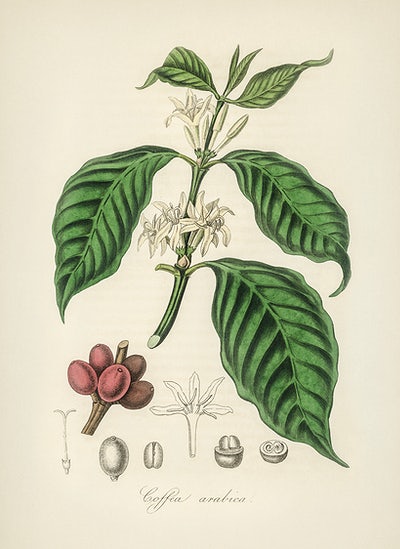
In the vast world of coffee, understanding the caffeine content in your cup is akin to unlocking a secret recipe for the perfect energy boost. Caffeine, a beloved stimulant for millions worldwide, not only wakes us up but also enhances our focus and productivity. But how much caffeine is in that cup of coffee you’re savouring? And more importantly, how can you measure and adjust it to suit your needs? Let’s dive into the intricacies of caffeine in coffee, providing you with the knowledge to master your brew.
The Caffeine Spectrum in Coffee
The caffeine content in coffee can vary dramatically, influenced by factors such as the type of coffee bean, the brewing method, and the serving size. On average, an 8-ounce (240-millilitre) cup of coffee contains about 95 mg of caffeine, but this number can range from 70 to 140 mg. Espresso, though served in smaller volumes, packs a more concentrated punch, with a single shot containing roughly 63 mg of caffeine.
Measuring Caffeine: From Simple to Sophisticated
Caffeine Testing Strips: For the home brewer, caffeine testing strips offer a straightforward way to estimate the caffeine content. While not as precise as laboratory methods, they provide a quick and easy solution for those curious about their caffeine intake.
High-Performance Liquid Chromatography (HPLC): The gold standard for caffeine measurement, HPLC, is a laboratory technique that separates, identifies, and quantifies each component in a mixture. While not feasible for everyday use, it’s the method behind the caffeine content information provided on your favourite coffee brands.
DIY Calculations: Some coffee enthusiasts adopt a more theoretical approach, using average caffeine extraction rates from coffee grounds. While this method involves a bit of guesswork, it can give you a rough estimate based on the coffee-to-water ratio and the type of beans used.
Adjusting Your Caffeine Intake
Bean Selection: Arabica beans typically contain less caffeine than Robusta beans. Choosing 100% Arabica blends can naturally lower your caffeine intake without sacrificing flavour.
Brewing Time and Temperature: Longer brewing times and higher temperatures can extract more caffeine. Experiment with shorter brew times or cooler water for a less caffeinated cup.
Grind Size Matters: A finer grind increases the surface area in contact with water, enhancing caffeine extraction. Opt for a coarser grind if you’re looking to reduce your caffeine dose.
Caffeine Sensitivity: Knowing Your Limits
Caffeine’s effects vary from person to person, influenced by factors like body weight, tolerance, and sensitivity. While up to 400 mg of caffeine per day is considered safe for most adults, it’s crucial to listen to your body and adjust your intake accordingly. Symptoms of excessive caffeine consumption include jitteriness, insomnia, and increased heart rate.
Crafting the Perfect Cup
Start with Quality Beans: Choose high-quality, fresh beans for the best flavour and caffeine consistency.
Measure Your Coffee: Use a scale for accuracy. A standard ratio to start is 1 gram of coffee to 16 grams of water.
Experiment and Adjust: Don’t be afraid to tweak your brewing variables. Making slight adjustments to grind size, brewing time, and temperature can help you find your ideal balance of flavour and caffeine content.
The Final Sip: Empowered Brewing
Armed with the knowledge of caffeine’s complexities and how to measure it, you’re now ready to tailor your coffee experience to your personal preferences and needs. Whether you’re seeking a gentle morning wake-up or a robust midday boost, understanding the caffeine content in your cup puts you in control. So go ahead, brew with confidence, and savour the perfect cup that not only tastes great but feels great too.
10 FAQs for Can you tell how much caffeine is in canned coffee ?
How much caffeine is in a standard cup of coffee?
A standard 8-ounce cup of coffee contains about 95 mg of caffeine, but this can vary between 70 and 140 mg depending on the brew.
Can I measure caffeine content at home?
Yes, caffeine testing strips offer a simple way to estimate caffeine content, though for precise measurements, lab methods like HPLC are used.
Does grind size affect caffeine extraction?
Absolutely. A finer grind increases caffeine extraction due to a larger surface area in contact with water.
How can I reduce my caffeine intake without sacrificing flavour?
Opt for Arabica beans over Robusta, experiment with shorter brewing times, lower temperatures, and use a coarser grind.
What are the signs I’m consuming too much caffeine?
Symptoms of excessive caffeine intake include jitteriness, insomnia, headaches, dizziness, and a fast heartbeat.
Is espresso higher in caffeine than regular coffee?
Yes, espresso has more caffeine per ounce, but because servings are smaller, a single shot contains less caffeine than a standard cup of coffee.
How does brewing time impact caffeine content?
Longer brewing times can extract more caffeine. For less caffeine, reduce the contact time between coffee and water.
Are there health benefits to caffeine?
Moderate caffeine consumption is linked to various health benefits, including improved mood, enhanced brain function, and a lower risk of several diseases.
Can I still enjoy coffee if I’m sensitive to caffeine?
Yes, consider decaffeinated coffee or lower-caffeine options like half-caff blends and monitor your body’s response.
How do I find the right caffeine level for me?
Start by tracking how different amounts of caffeine affect you and adjust your coffee strength and consumption patterns accordingly.
Blog Tags
caffeine content, coffee brewing, espresso guide, caffeine measurement, health and caffeine, coffee grind size, brewing techniques, caffeine sensitivity, coffee benefits, home barista










